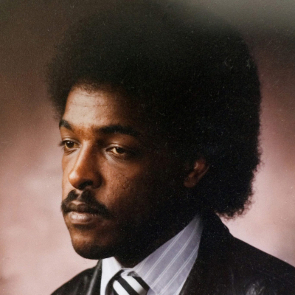Statement on the 20th anniversary of the incommunicado detention of Swedish-Eritrean journalist and human rights defender, Dawit Isaak
It is with deep regret that Front Line Defenders acknowledges that today, 23 September 2021, award-winning Swedish-Eritrean journalist and human rights defender, Dawit Isaak, has now spent 20 years in incommunicado detention in Eritrea.1 Two decades on, it is clear that diplomatic efforts to secure the human rights defender’s release by Sweden and others have fallen on deaf ears.
On 23 September 2001, Eritrean security forces arbitrarily detained Dawit Isaak, without charge or trial, along with at least 10 other independent journalists. He was unexpectedly released in 2005 for medical treatment but was arrested again just two days later and nothing has been heard from him since. The human rights defenders present condition and whereabouts are unconfirmed (though it is believed that since 2008 he was being held in the maximum-security Eiraeiro prison, outside the capital, Asmara, and that in 2020 he was transferred to hospital for treatment and subsequently moved to an unknown prison location). He has had no contact with relatives, no access to Swedish consular officials, and no recourse to a lawyer.
In 1993, when Eritrea finally gained independence from Ethiopia, Dawit Isaak returned to his native country from Sweden and began reporting for Setit, the first independent newspaper in Eritrea – a publication which he went on to co-own. He was a vocal critic of authoritarian rule that emerged in the country following independence. On 9 September 2001, a group of politicians known as the “G15” published a series of open letters in which they criticised President Afwerki and called for democratic reforms. This letter prompted a slew of editorials about human rights, democracy, and the border war with Ethiopia. Days later, President Afewerki launched a devastating clampdown on these dissenting voices, arresting top officials, banning the press, and jailing journalists and other critics. Dawit Isaak was arrested along with ten other journalists, and eight independent newspapers were shut down.
Today, 20 years on from his arrest, Dawit Isaak remains detained incommunicado without charge or trial. The last ‘proof of life’ was in 2010, when a former prison guard reported that the human rights defender was being kept in conditions exposed to ‘terrible heat’. Prison conditions in Eritrea are notoriously grim, with poor sanitation and inadequate access to medical care, and reportedly seven of his colleagues have died in detention due to the harsh conditions and ill-treatment.
Dawit Isaak’s continued incarceration is a tragic indictment of Eritrea’s dismal human rights record, and of the international community’s human rights commitments. Eritrea is one of five African nations running for the five seats reserved for African nations on the United Nations Human Rights Council (2022 – 2024). This seat carries specific human rights commitments. The international community must move beyond the rhetoric of holding human rights standards as benchmarks of engagement, to standing steadfast and insisting that Eritrea demonstrate its commitment by immediately and unconditionally releasing Dawit Isaak and all other journalists and human rights defenders detained incommunicado in the country.
Front Line Defenders acknowledges that the European Parliament has consistently called for Dawit Isaak’s release and most recently urged “Eritrean authorities to provide him with access to representatives of the EU, the Member States and Sweden in order to establish his healthcare needs and any other necessary support”. At this juncture, we urge Sweden to lead on a vigorous campaign, together with other EU member states and institutions, to secure the human rights defender’s release, and to send a very clear and public message that his immediate release is a key element of enhanced EU-Eritrea cooperation. The time is long overdue for more ambitious and concrete diplomatic actions to secure Dawit Issak’s freedom.
1 In 2003, Dawit Isaak was awarded the Reporters Without Borders Freedom of the Press Prize. In 2011 he received the Golden Pen of Freedom Award from the World Association of Newspapers. In 2017, he received the 2017 UNESCO / Guillermo Cano World Press Freedom Prize.

